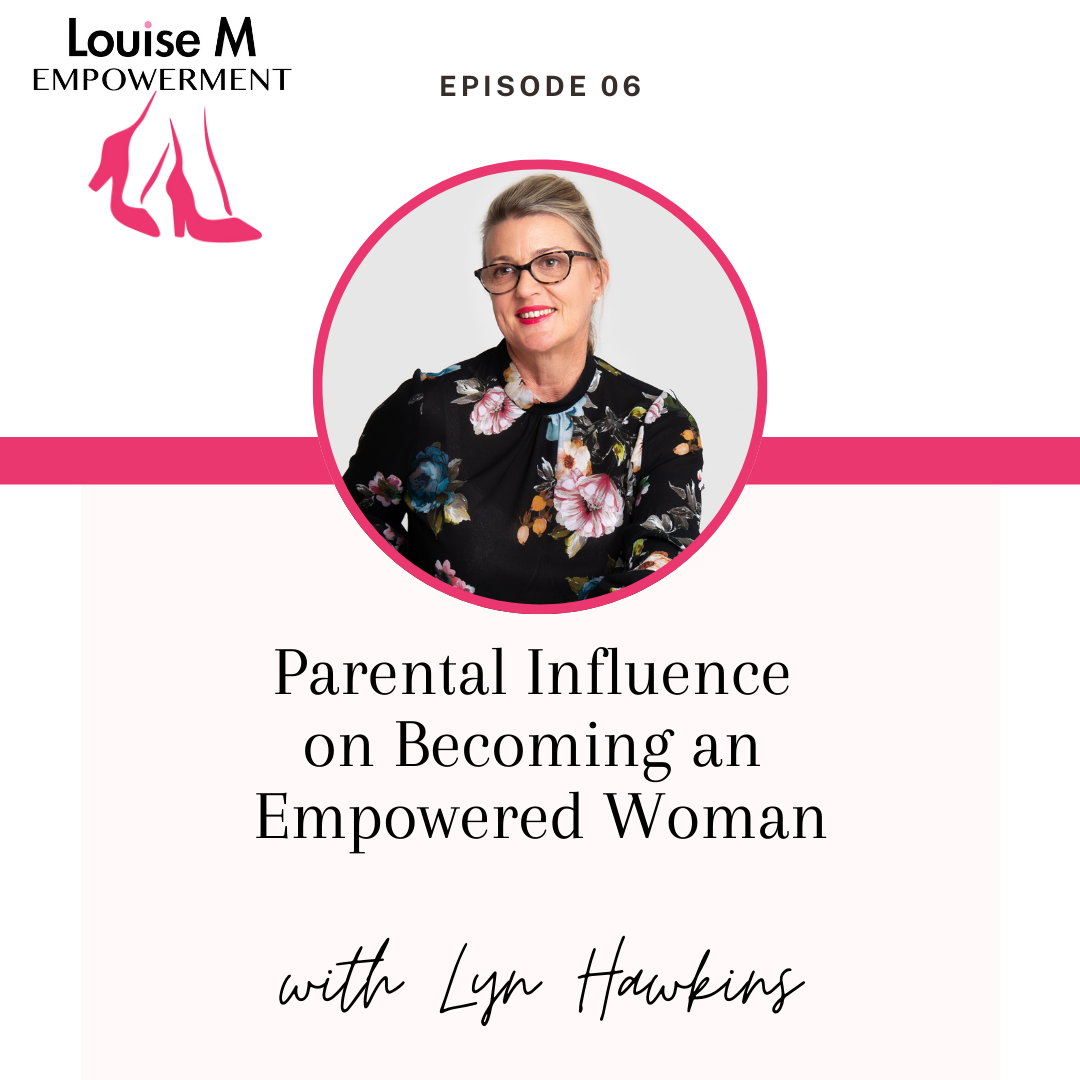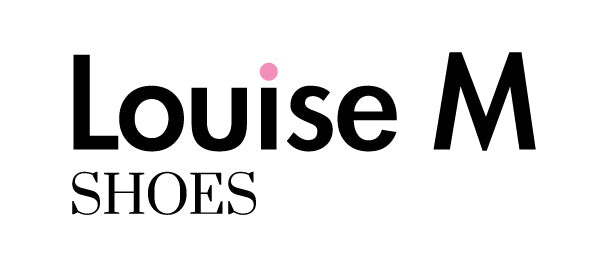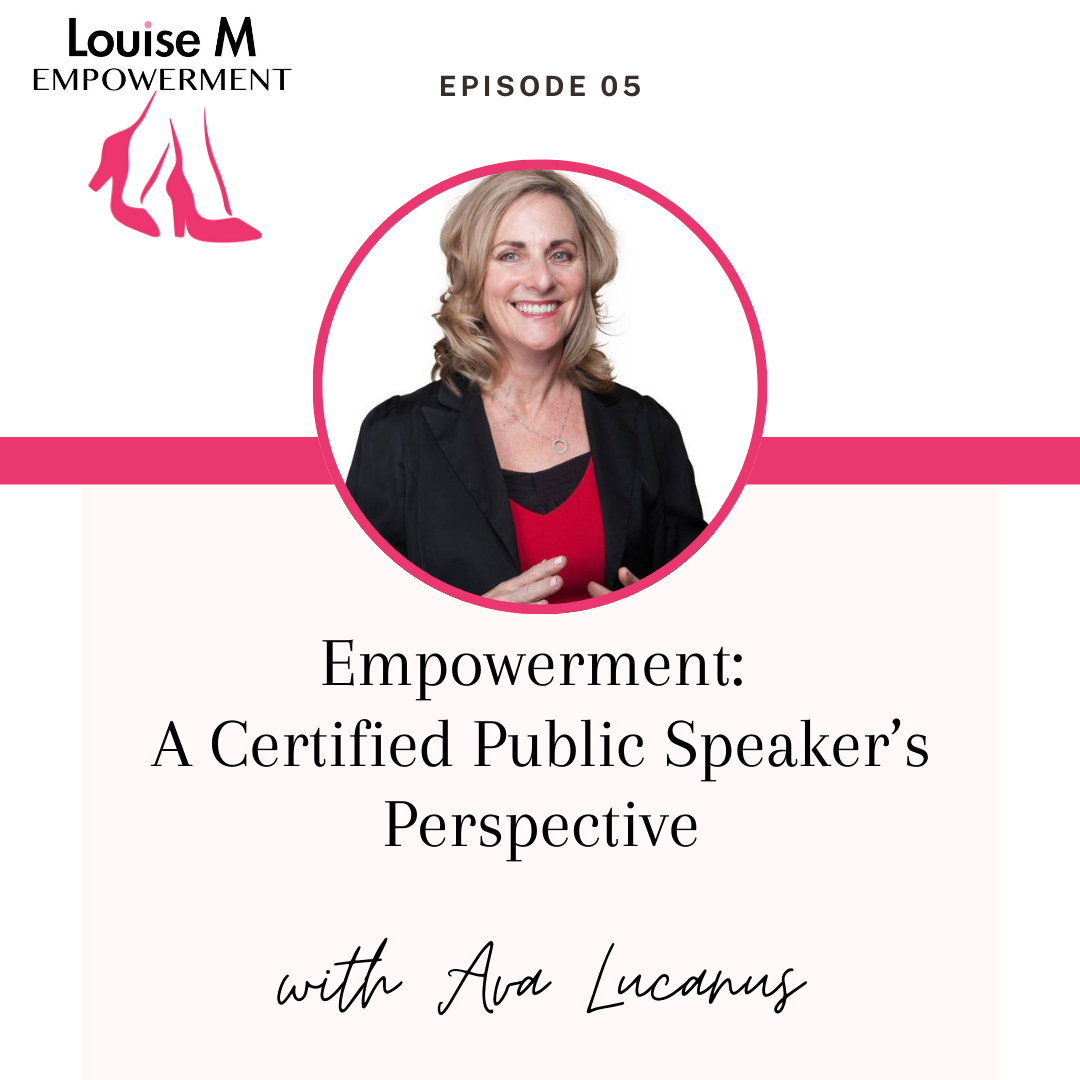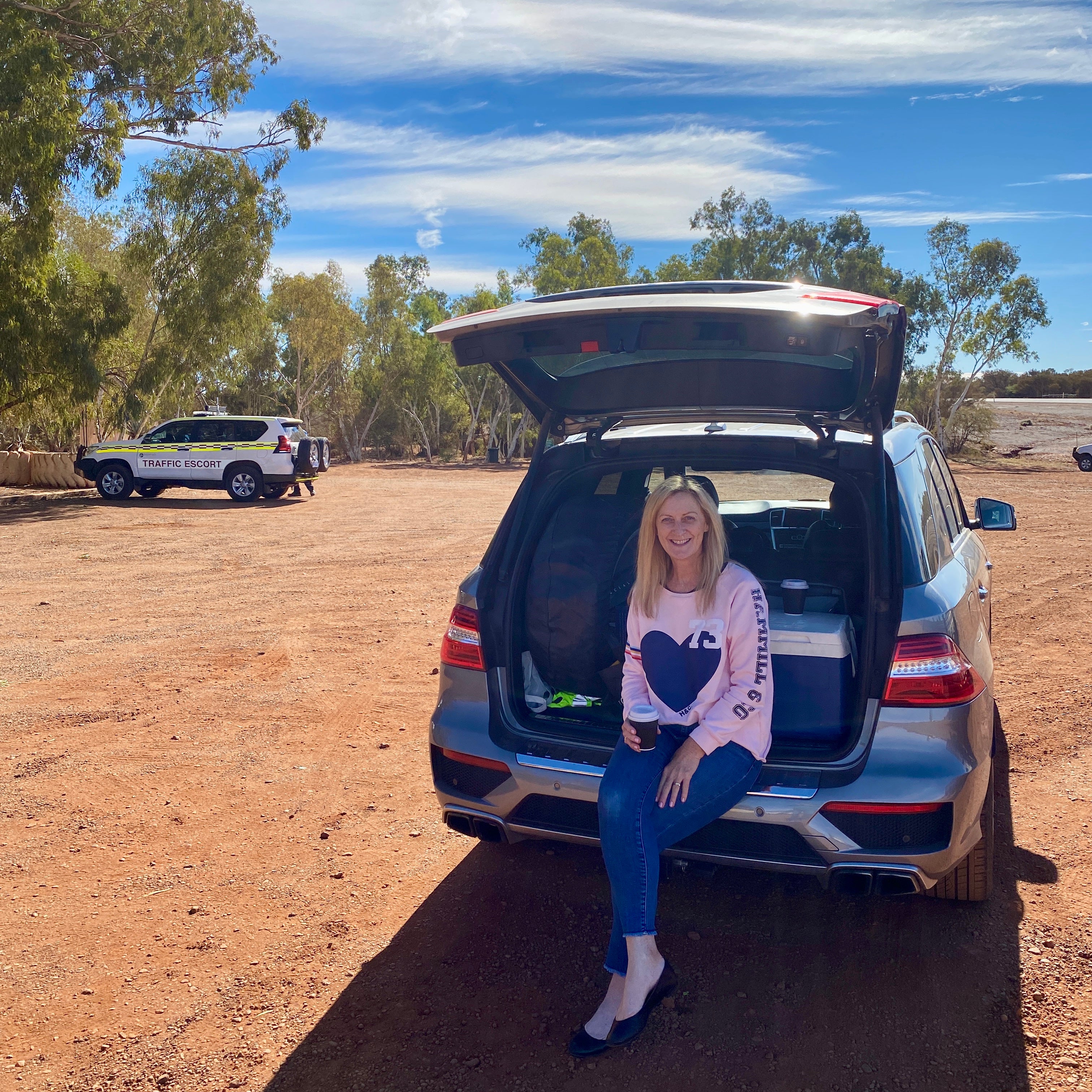
Louise M Empowerment series with Louise Matson and Lyn Hawkins, National Director of Business Women Australia
“Without a doubt, I was influenced by both my mother's business and my father actually embodying to me that I could be and do whatever a boy does. You know, I think that is very fortunate that I was brought up with that kind of family.” Lyn Hawkins stated.
Parents are the most important role models for their children. Every statement, gesture, and behavior has an impact. As a child, having a reliable adult to turn to gives access to genuine guidance that leads to a better life. A child's value and confidence are heavily influenced by the adults they associate with. Therefore, parents play a crucial role in empowering a child that would later affect their adulthood.
In today’s episode of Louise M Empowerment Series, we are joined by another uplifting and empowered woman, Lyn Hawkins. Lyn is the National Director of Business Women Australia. She is also the Director of Hawkin’s Marketing and Strategy in Business Development Consultancy, a National and management consultant with a focus on business growth, marketing, and transformation. She has held senior roles with KPMG, HHG Legal Group, HLB Mann Judd, and Telstra, in addition to General Management roles with technology-based businesses.
Lyn advocates that today’s fast-paced marketplace requires mutually beneficial partnerships to leverage creativity, experience, and resources.
The Podcast Transcript is below for your enjoyment.
Louise Matson (00:02):
Hi Lyn. It's so great to have you here today to speak with you about empowerment in women.
Lyn Hawkins (00:10):
It's a great topic Louise. Isn't it? It's a hot topic because everywhere I'm looking, there's something going on about women's empowerment.
Louise Matson (00:18):
Yeah. And it really has, I mean, it's always been around, but it really has come to the forefront in the last year or so. Hasn't it? Well, for me it has.
Lyn Hawkins (00:28):
Yeah. Without a doubt, I think that women are really stepping up now. There's massive movement at the moment. And you know, I think that we've been talking about changing corporations and in government and in communities and we aren't necessarily, haven't seen those changes. So I think women are actually starting to recognize that empowerment is really something that we need to be carving out for ourselves and stepping up the be, looking at our own ways and pathways forwards in terms of empowerment. So, you know, we were talking earlier on about what does empowerment mean? And I think for me empowerment is about freedom and, having the freedom to choose, having freedom to make an impact, having the freedom to step into an arena, if that's something that you're passionate about and have that, the freedom to be there and the right to be there.
Lyn Hawkins (01:28):
So for me, empowerment is all about freedom. It's a funny word, you know, when you said, ask me, you know, to come on to your show and talk about it. I thought it's a word that I haven't really liked because it sounds often like it's coming from outside, you know, to empower someone means that the control is being held by something or someone else. And I guess as a bit of a free agent myself, that has been an interest, it's been an interesting word, but the reality is our community structures and the systems that we've inherited you know since the industrial revolution really in commercialization of the Western world, we really inherited structures that haven't necessarily enabled the kind of empowerment that I think the women's movement originally thought was going to happen right back in the fifties and sixties.
Lyn Hawkins (02:22):
I think that's why it's actually quite a good topic to really unpack when there are women all around the world who just don't have choices and don't have freedoms. And the reality is that it's because of the systems, the structures that don't allow them to get educated, that you know, that they're still being, you know, married under 18 in so many countries. I feel those structures really enable choices for women and value women and what they bring to, a community as leaders. Um, you know, it's a real struggle for women in those positions. That's a great topic.
Louise Matson (03:01):
Great. Thanks Lynn. And on that, are you just talking about, you know, children are still getting married and, or having to marry very early and so let's go back to your childhood. That's what I'm really interested in this series is to go back and, and see if you felt valued and confident and, and has that carried you through to adulthood in your successes in adulthood? So, yeah. Talk to me a little bit about your childhood, your siblings. Where you were in that sibling lineup and was there someone that, encouraged you and gave you that confidence and self value as a child? You know, was it a parent, was it a grandparent, an aunt, was it your old school education, was there something, or was there nothing, did you completely feel, feel well?
Lyn Hawkins (03:52):
My childhood was typical of a country kid, probably in Australia, you know, in the seventies. I was the youngest of, a big family, Catholic family. And I was the only daughter. I have five brothers, one of them is a foster brother and four biological brothers age difference between me and the others. Mum said that she just tried not to have children. So as it happened, she had them with these massive gaps between them. Now there's 21 years between me and the first born Rob. So, and my closest sibling, Bernie is eight years older than me. So by the time I was sort of going to school and sort of starting to have opinions and views about how I wanted to live my life and how I want to spend my time after school, my brothers were all gone. Bernie was in high school system and went away to boarding school, but I was kind of brought up in a very different family structue than my brothers where they talk about mum and dad being much more controlling, much more involved in their lives.
Lyn Hawkins (05:00):
When I was in grade one, my mum started a business. So it was never a thing that mums weren't, couldn't go into business. Mum started a little dress shop called the Midwest fashion boutique in Three Springs with a massive drapery. So I'm sure that the experiences I had as a free range country kid, whose parents were both working, I'm sure that shaped my feelings of being, the person in control, the person who makes the choices about how things are done, what projects, what clubby houses get built, what who gets to do what, you know, I've kind of had a bit of a gang with my bike and I had a girlfriend that lived down the road. We used to, you know, set our alarms and go down to the local pool every morning, before high school and swim our 30 laps
Lyn Hawkins (05:51):
So we could beat all the Antonio cousins, and you know, it was, it, was a great lifestyle. And I'm sure that that confidence that t I got out of growing up like that, even though in a lot of ways I think about, you know, my parents were kind of distracted. I think it was a good thing in a lot of ways. I was doted on, being a female and the only little girl in the family, not only did mum and dad spoiled me rotten, but these brothers who were like kind of uncles that used to whiz in and out of our lives would, you know, throw me in the air and I've got photos of us all, you know, you know, during the, you know, the muscle thing that, you know, that they would've been doing in their twenties where their big muscles as their bodies were changing. And there's me as, you know, seven year old doing it too.
Louise Matson (06:37):
I can do, I can do what you can do already
Lyn Hawkins (06:45):
I was never told that I couldn't do what anyone else. In fact it was expected cause dad was used to having all these boys, so, and mum was brought up with the business. So dad would expect me to do what any boy would do. You know, I used to help him with his ducks, you know, chopping off the heads so that it getting ready for the Sunday roast and, you know, playing with the gizzards. I mean, it just it's mind-boggling really what dad expected me to do. I was his right-hand man and I was a tomboy as a result of it. But I had mum dressing me up and, you know, in all the best latest fashion. So, you know, I was very lucky, very lucky life.
Louise Matson (07:24):
Yeah. It's, it's interesting. Cause I've actually got four older brothers too, and my eldest brother is eight years, so there's four boys in that eight years, I had them all at home with me. So, uh, yeah, even that is quite a different experience from what you had. But yeah, even your mum going to work rather than running a household. Did she always have a business, no that was when you were in grade 1?
Lyn Hawkins (07:50):
Yeah, she was really, had been, really, was really dedicated to being the stay-at-home mum and providing all that support for the family. And, was probably a bit of a loss of what to do? Cause I was at school and going into grade one and dad was, had suggested that she do some work, I think in their local kindergarten, which she said was she didn't, wasn't good at it. She couldn't control the kids. And she found it really horrendous. That didn't happen. And then we had family friends who ran the local pub, the Gatty's and mum and Mrs. Gatty started up the shop and mum ended up running it and buying out Kay. And like, you know, that was a massive opportunity for mum to learn how to run a business. And with, the mentorship of a much younger friend Aunty Kay was a lot younger, kind of the same sort of age, really as my brother, to be honest, my oldest brother, and got mum set up and it was a great opportunity.
Lyn Hawkins (08:51):
Mum ran that shop really well. Uh, as a result I learnt a lot about small business about the importance of customer service. Mum used to take me for shopping trips. You know, in those days the rag trade was on King street and Queen street in the city. We trapse in and out of all those amazing places and down to Karen distributors and to Silbart's. And you know, I remember those years really well going on shopping trips with mum, because she'd have in mind, her clients, every single one of those women around that whole Midwest region used to come into that little shop and they would tell mum if they had a special occasion coming up and mum would be out buying almost like a personal buyer for them. She had everything from after five, as she called it down the back of the shop who, you know, there were the materials, there's a whole wool section on the wall. There were, there were patterns and lingerie, and baby's clothes. And there were three mannequins in the window that I used to get to colour theme and dress. So that was always fun.
Louise Matson (09:58):
Did this lead into your marketing enthusiasm?
Lyn Hawkins (10:02):
I amd sure it actually has influenced marketing from my, you know, from a profession because when I remember when I was doing my first marketing unit at UWA and we were talking about Theodore Levitt's theory of marketing and you know, about the customer being central to every strategy. You know, if you don't have the customer central, then it's just another mousetrap, you know, the product centric strategy. It's not really marketing. If the organization wants to be successful, it has to be customer centric. And I remember thinking that it resonated with me because that was exactly how my mom ran her business and I thought, wow, I want to do this. I want to learn more about the psychology of buying behavior and purchasing decisions and that, and how organizations actually shaped themselves to be very customer centric and able to change as customers' needs change. So for sure, I have no doubt that that influenced me.
Louise Matson (11:00):
And then, I mean, you've been so successful in so many of your marketing consultancy side of things,beside going to university, how did you build that, um, that sense of, yes, I can do this and your confidence in that. Were there other things that helped you go through those businesses and build that
Lyn Hawkins (11:25):
I've always loved, I've always loved doing things with people. You know, even as a little kid, and as a teenager, I was always organizing things, I'd always be organizing events and organizing get-togethers and theming out things and having fancy dress parties, whatever it would be. I'd always love a love, a theme or a project to work on. And when I was going through uni, I always had my finger in, sort of other things, you know, like, working with the arts. You know, I had quite a few friends who were artists and didn't know anything about business, so I'd be helping them with their businesses, with their exhibitions with their marketing. When I left uni I'd done an honors degree in R and D based industry. And so I went tech start off with so I was working in tech park, opposite Curtin uni when it's still there Tech Park.
New Speaker (12:15):
I worked for a computer programming company there, which really was amazing because that was a great time to be in a very innovative space. And it really set me up for life because, starting a foundations in business way back then, you know, I'm talking the mid nineties and actually starting out then around what was going on in the revolution of technology and, the world wide web, we called it the internet and then enabled me to get into a really awesome role at Telstra. Um, during the deregulation, it was called telecom. We were going through some major changes then around the, you know, people can't remember this, probably a lot of young listeners on here, but, um, they pretty much had a monopoly on the whole network and the first phone. And I was a part of the team over in Melbourne who was working on the strategy around deregulation of that, and then how that would, how we would predict, you know, the makeup of technologies and, a wonderful opportunity for then to build, to work in a corporate environment.
Lyn Hawkins (13:22):
And from there I went to KPMG, so I was always looking for amazing opportunities. And I had this confidence. So many of my girlfriends talk about this imposter syndrome and I I've maybe I was too stupid to feel it, but I just thought I was going to bring, bring so much opportunity to every project, because I didn't think for a minute that everyone would be relying just on me. I, I would bring in people always brought in people. So I've been a born collaborator. And I think that's taken a lot of pressure off me to feel like I have to come up with all the answers. I understand the processes of bringing people together and at KPMG, I think they recognized that. And they got me formally trained in facilitation, which was an amazing skill to then be able to bring on to the next part of my career. So one of the things I love most is to get groups of people together and facilitate the strategy planning days, and then help them map out how that's going to be implemented.
Louise Matson (14:27):
This lead into your networking group, Business Women Australia.
Lyn Hawkins (14:34):
Yeah, I mean, I'm kind of a bit accidental in this role as you well know, you know, our gorgeous Co founder, Jennifer Bryant had a women's group going on in WA for many, many years. And I used to love no matter where I was at in role I was doing or with whichever firm or company I was working with. I used to love, dropping in every now and then to the business women's group. And when I'd been out consulting, I'd left my last corporate role and I rang up Jen and said, let's get something together and make it national and do something that's a bit bigger than both of us could even imagine. Let's bring some people together. And, and that's how Business Women Australia grew, you know, sort of something that I would never have done on my own. I would always look at well, who's doing something. How can I join forces, and really make it something, you know, bring the skills bring my skills to the table and help them be better rather than go out and compete or set up something alternative.
Louise Matson (15:37):
And, and that's another thing about empowerment is that it's about helping others feel empowered. And from firsthand experience with Jennifer Bryant when she had Women in Business WA, which became BWA, you know, I just started my business and she was amazing. And then I see you as well. I mention to everybody to join Business Women Australia, because it's such a great network, so we have great wine too,
Lyn Hawkins (16:05):
Amazing, and it's all built on co-creation and collaboration. I mean, I don't sit back and work out with the team, what we're going to roll out every year. It's all done with a premium level members. They'll come to us with whatever it is that they want to do, how they want to do it, and we'll give it a go. You know, we're sort of, we'd like to partner with women who have an idea of getting something done. And so I think it's really, a the really great brand because it's owned and developed, it's driven and changes because of the women involved. And it's not a government funded entity. It's a social enterprise that's actually all share holders are women. So we've got five female shareholders and growing we'd be, we'll have more by the end of next year. And with that then comes all these amazing things that are starting now to come to fruition. You know, the original strategy that we've developed is still very relevant. It's now starting to become a reality. It's amazing.
Louise Matson (17:06):
Yeah. So as well as, you know, you inspire and support there, but women who perhaps join that group and they're not feeling so empowered, what do you suggest to them?
Lyn Hawkins (17:21):
Well, it's about surrounding yourself with supportive people. You know, we all need, we all need a group champion, what we do and being our eyes and ears in the market, being there to help us when we're down, being able to have a laugh with us, you know, when things to laugh at being able to have a cry with us when things are going wrong. But it's also about tapping into the resources that are here. I mean, we've got incredible amount of short courses that are all evidence-based courses provided by Torrens uni that all our can access at no cost. We've got webinars, we've got podcasts, we've got events and there's a whole directory of community members. If there's anyone on there that people want to reach out to, these are women who've said, put their hands up and said, I'm a generous spirited member of Business Women Australia.
Lyn Hawkins (18:09):
I will take your call. I will help you out. If you know, this is a community that supports each other. And I just, I mean, there's no reason to be out there fretting and feeling that it's all too hard and you don't know where to go and you don't know what to do, you know, pick up the phone, you know, we're all there. And, you know, I've spent, I've spent quite a lot of my time just doing 30 minute calls with women all around Australia, from the regions, right through who Sydney central Sydney, you know, they might be partners of law firms, or they might be running an agribusiness, or they might be just starting up or a student of business. You know, I'll give them 30 minutes of my time if they need it. That's the reality. That's what we're all about.
Louise Matson (18:49):
That's fantastic, Lyn. And part of this series, is really having some tools there for those that are listening that are feeling a little disempowered or want to be inspired. So I'm wanting to provide that for them as well. So thanks Lynn. Yes, Business Women Australia everybody join, come along you can actually not even join you just come along and, and try it first. So how could they get in touch with you Lyn if they did want to?
Lyn Hawkins (19:21):
Well, the best way to get in contact with us is on our website, www.business women, australia.com.edu. We've got a contact form on there and that drops directly into my inbox. And I will respond to you have a look on our calendar of events. There are so many free online events every month. So it doesn't matter where you are. You can jump on for free and connect. We always have a bit of a chinwag and a chat. They're not streamed. They're not sort of hidden from the audience. You know, you'll get to see who else is on this small group events. We also have in-person events, which you can come along and you don't have to be a member to go and check it out. So there's no excuses.
Louise Matson (20:03):
Yeah. Thanks Lyn. Well, I think I have deduced from your interview today is that you've been a bit of a dynamite since you or dynamo, since you were a young child and you were heavily influenced by your mother's business.
Lyn Hawkins (20:19):
Absolutely. Without a doubt, I was influenced by both my mother's business and my father actually embodying to me that I could be and do whatever a boy does. You know, I think that is very fortunate that I was brought up with that kind of family.
Louise Matson (20:39):
Absolutely. Well, thank you Lyn, it's been an absolute pleasure speaking with you today as always. So thank you so much for your time. I'll speak to you again soon.
Lyn Hawkins (20:49):
Thanks Louise. I really appreciate being invited.
"The most comfortable corporate shoes on this planet!" Lyn Hawkins
If you would like to feel empowered in the best cabin crew and corporate women's shoes visit wwwlouisemshoes.com
To connect with Business Women Australia:
www.businesswomenaustralia.com.au
M: 0437 197 914
lyn@businesswomenaustralia.com.au
Twitter: @lynannehawkins @BusinessWomenAu



Leave a comment
This site is protected by hCaptcha and the hCaptcha Privacy Policy and Terms of Service apply.